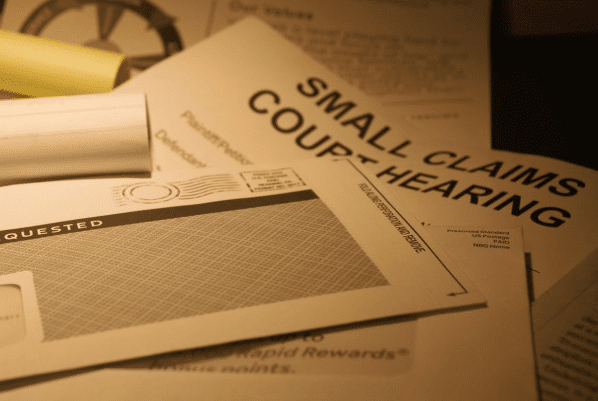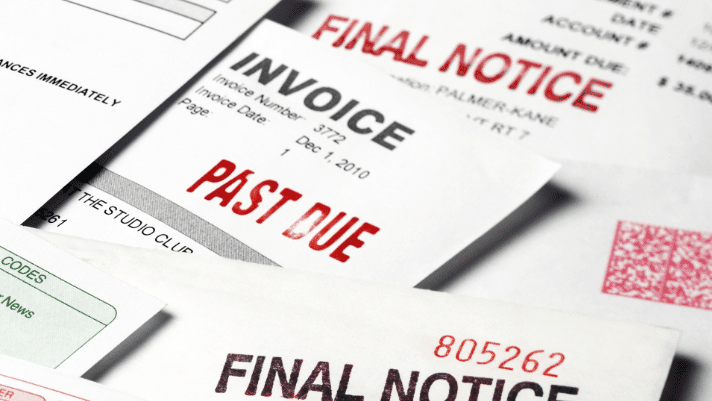Responding to a debt lawsuit in Arizona is crucial to avoid automatic default judgment. With a deadline of 20 days to respond, it’s essential to act promptly. ZumaZip offers assistance by helping you prepare and file an Answer to the lawsuit, potentially resolving the debt without the need for court proceedings. Keep reading to discover more about responding to a debt collection case in Arizona and how ZumaZip can assist you.
Responding to a debt collection lawsuit in Arizona is indeed crucial to protect your rights and financial interests. Ignoring the summons can lead to severe consequences, including a default judgment against you. Understanding Arizona’s debt collection laws and procedures is essential for crafting a strong response.
It’s understandable to feel uncertain about how to proceed, but ZumaZip can help simplify the process for you. With ZumaZip, you can confidently prepare and file your response to the lawsuit, ensuring that your interests are represented effectively in court. Don’t hesitate to take action and respond to the summons promptly to protect yourself from potential financial hardships.
On this page, you’ll find FAQs and details on:
- What a Summons and Complaint are
- What an Answer is
- Filing deadlines
- The Arizona debt collection statute of limitations
- Where to find Answer forms
- Steps to file a written Answer
- What is ZumaZip
- The Arizona Fair Debt Collection Practices Act; § 32-1001
- Arizona legal aid organizations
- How to file in other states
What are a Summons and Complaint?
When you’re sued for debt, you’ll typically receive two important documents: a Summons and a Complaint. These are delivered to you by a process server, a sheriff, or through certified mail. This process, known as “service of process,” ensures that you’re officially notified of the lawsuit.
Dodging the process server won’t make the lawsuit disappear, as there are alternative methods for serving court documents if personal service is unsuccessful.
The Summons is a formal notice informing you that you’re being sued in civil court. Meanwhile, the Complaint outlines the plaintiff’s allegations against you and what they’re seeking as a remedy. It’s important to understand that being served with a Complaint doesn’t mean you’re automatically guilty—it simply means that the other party is making specific claims against you.
What’s an Answer?
An Answer is your written response to the Complaint filed by the creditor or plaintiff. It’s your opportunity to address each allegation made against you in the Complaint. In your Answer, you indicate whether you admit or deny each specific claim brought against you by the plaintiff. It’s important to note that your Answer is not the place to provide a detailed explanation of events or financial hardship—it’s simply a concise statement of agreement or disagreement with each allegation.
Do you have to Answer a Complaint and Summons?
While you’re not legally obligated to respond to a Complaint and Summons in Arizona, choosing not to respond can have serious consequences. Ignoring these documents could result in a default judgment being entered against you, which means the court may rule in favor of the plaintiff without considering your side of the story. This could lead to wage garnishment, bank account levies, or other actions to collect the debt. So, while you technically have the option to not respond, it’s generally not advisable to do so. It’s important to take these legal documents seriously and consider responding to protect your rights and interests.
Can You Answer a Summons for Debt Collection in Arizona without an Attorney?
Yes, you can respond to a summons for debt collection in Arizona without hiring an attorney. While having legal representation can be beneficial, especially for complex cases or situations where the creditor’s actions are questionable, it’s not mandatory to have a lawyer to respond to a debt collection summons.
You have the option to complete and file the Answer on your own. Alternatively, you can use resources like ZumaZip, which guides you through the paperwork and submission process efficiently. This can be a helpful solution if you’re not familiar with legal procedures or if you want assistance in ensuring that your response is completed correctly and submitted on time.
What if my Arizona Summons and Complaint list a Jane Doe?
If your Arizona Summons and Complaint list a “Jane Doe” as a defendant, it typically means that the plaintiff believes there is a marital relationship involved and is suing both spouses. In such cases, it’s important for both spouses to respond to the lawsuit. The named defendant should file a response to the summons and complaint, and the spouse should also sign the paperwork and be involved in the legal proceedings. It’s crucial to address the lawsuit comprehensively to ensure all parties involved are properly represented and protected.
What’s the Arizona deadline for answering a debt collection Summons?
In Arizona, the deadline for answering a debt collection summons varies depending on the method of service:
- Standard Service: If you were served with the summons in person, you typically have 20 days from the date of service to respond.
- Service by Mail: If you received the summons by mail, you also have 20 days from the date of mailing to respond.
- Out-of-State Service: If you were served while out of state, whether in person or by mail, you have 30 days to respond.
- Service by Publication: If the creditor published a notice of the summons in a newspaper instead of serving you directly, you have 50 days to respond if you’re in-state and 60 days if you’re out-of-state.
It’s essential to adhere to these deadlines to avoid default judgment, which could result in significant consequences.
What’s the statute of limitations on debt in Arizona?
That’s correct. In Arizona, the statute of limitations on debt varies depending on the type of debt and the terms of the agreement. Here’s a general overview:
- Written Contracts and Credit Cards: The statute of limitations for written contracts, including credit card agreements, is typically six years from the date the cause of action accrues, as per A.R.S. § 12-548.
- Oral Agreements: For debts based on oral agreements, the statute of limitations is shorter, typically three years from the date the cause of action accrues, according to A.R.S. § 12-543.
It’s important to note that the clock starts ticking on the statute of limitations from the date the cause of action accrues, which is usually the date of the last activity on the account or the date of default. Once the statute of limitations has expired, creditors generally cannot sue to collect the debt, though they may still attempt to collect it through other means.
| Debt Type | Deadline |
|---|---|
| Oral Contract | 3 years |
| Open Account | 3 years |
| Credit Card | 6 years |
| Medical | 6 years |
| Student Loan | 6 years |
| Auto Loan | 6 years |
| Mortgage | 6 years |
| Personal Loan | 6 years |
| Judgment | 10 years |
| Ariz. Rev. Stat. § 12-543, § 12-548, and§ 12-1551 |
Where can I get Answer to Summons forms in Arizona?
Generic Arizona Answer to Summons forms are available through county court websites as well as through the official Arizona Judicial Branch website.
- Answer (for lawsuits under $10k)
- Answer (for lawsuits over $10k)
- E-filing (civil)
- E-filing (small claims)
- ZumaZip (all)
What are the steps to respond to a debt collection case in Arizona?
There are four primary steps involved in Answering or responding to a debt collection case in Arizona.
Step 1: Create the Answer Document
Use an Answer form as provided above and include the unique details of your case including:
- Your personal contact information such as name, address, and phone number
- The plaintiff’s contact information
- The court’s information
- Case details such as the case number
Step 2: Answer Each Item in the Complaint
As you’ll see in the Answer forms, you should respond to each allegation/paragraph in the Complaint. There are three ways to respond:
- Admit the allegation
- Deny the allegation
- State that you do not have enough information to know whether the allegation is true or false
It’s important to note that the plaintiff has the burden of proof in the beginning stages of a lawsuit. This means that, if you deny the allegations, the plaintiff must prove otherwise. This usually requires more work and time on the plaintiff’s part. Because of this, attorneys generally recommend not to admit anything is true that you’re not wholly certain of.
For example, if you don’t know your account number, don’t admit that you owe a certain amount of money on that account. If you’re not sure that the plaintiff has jurisdiction or the right to sue, don’t admit it’s true. Some attorneys even advise defendants to deny every allegation in their Answer.
Step 3: List Affirmative Defenses if Applicable
The standardized Arizona Answer form contains roughly 20 potential affirmative defenses in the “Defenses and Denials” section as well as the opportunity to write in your own Answer. These assert that the plaintiff does not have a case because they’ve done something wrong. Some of the most commonly used affirmative defenses include:
- Statute of Limitations: It’s been more than six years since you broke your written agreement or three years since you broke a verbal agreement to pay the debt.
- Insufficient Service of Process: You weren’t given the Summons and/or Complaint or some part of the process was not handled properly.
- Estoppel: The plaintiff led you to believe they would not enforce the contract.
- Payment: You’ve paid some or all the debt.
- Statute of Frauds (SOF): The agreement between plaintiff and defendant was not in writing but it needed to be in writing for it to be legally enforceable. This only applies in certain situations, such as when the value of goods being sold exceeds a certain amount or when the agreement cannot be fulfilled within a year.
In most cases, the only time you can bring certain defenses forth is when you provide your written Answer. In other words, if you fail to mention an affirmative defense at the onset, the court may not recognize it later. For this reason, it’s important to consider every avenue you might take before submitting your Answer and check every box that’s applicable. Also bear in mind that this is not the time to tell your side of the story, since the burden of proof is on the plaintiff and not you. Keep your Answers as brief as possible to avoid potentially weakening your case.
Step 4: File with the Court and Serve the Plaintiff
Once your paperwork is completed and signed, you should file the original copy with the court. Provided you’ve allowed enough time for processing, you can send the documents to the court through the U.S. mail. However, you can also deliver the papers to the court clerk or ZumaZip can file for you and can even handle overnight delivery.
You must also send a copy of the Answer to the plaintiff or, if they have a lawyer, to their attorney. Despite being referred to as “service,” you do not need to hire a process server. It can be sent via regular mail to the address included in the paperwork you received.
The Answer should include a Proof of Service, which declares that you have submitted the Answer to the court and plaintiff’s attorney and includes the mailing addresses.
Remember to keep a copy of the Answer for yourself as well.
Possible routes you can take in a debt lawsuit
There are several routes you can take if you’ve been sued for debt. Each debt collection lawsuit is unique, but this flowchart can give you an idea of the possible actions you can take in your case:
Your Arizona court may charge you a filing fee
Yes, Arizona does charge a filing fee for filing an Answer in response to a debt collection lawsuit. The fee varies depending on the court where the lawsuit was filed. Typically, the fee is required to be paid at the time of filing the Answer document. It’s essential to check with the specific court where the lawsuit was filed to determine the exact filing fee and payment method.
It’s unfortunate that courts in Arizona charge a filing fee for an Answer to a debt lawsuit. This fee can range from $40 to $245 depending on the court handling your case. At ZumaZip, we understand the frustration this can cause, and we’re here to help.
When you use ZumaZip to file your response, we’ll inform you of any filing fees associated with your court. We’ll also make the process as smooth as possible by calculating the fee for you, providing an easy way to pay it, and ensuring that your payment reaches the court on time. Our goal is to make navigating the legal process as seamless and stress-free as possible for you.
What is ZumaZip?
ZumaZip simplifies the process of responding to a debt collection lawsuit. Here’s how it works: ZumaZip guides you through a series of questions to complete your answer document. Once you’ve finished, you have the option to print the completed forms and mail them to the courts. Alternatively, you can choose to have ZumaZip file the documents for you for a fee, which includes having an attorney review your document. This streamlined approach takes the complexity out of responding to legal matters, making it more accessible and convenient for everyone involved.
Settle your debt in Arizona
Negotiating a debt settlement can be a proactive step towards resolving your debt issues in Arizona. By reaching out to your creditor or debt collector, you may be able to arrange a settlement agreement that allows you to pay off a portion of your debt and clear your name. This could involve setting up a payment plan or offering a lump-sum payment to satisfy the debt. Given the potential consequences of losing a debt lawsuit, such as wage garnishment, pursuing a settlement can offer financial relief and peace of mind.
Do the Arizona Fair Debt Collection Practices Act guidelines apply when filing?
Are the guidelines outlined in the Arizona Fair Debt Collection Practices Act applicable during the filing process? The Fair Debt Collection Practices Act (FDCPA) establishes federal regulations designed to safeguard consumers from harassment or unethical conduct by companies. It delineates specific prohibitions for creditors and mandates certain actions they must take when pursuing debt collection. Examples of these provisions include:
Prohibitions:
- Initiating contact before 8 a.m. or after 9 p.m.
- Making any form of threat (including threats of wage garnishment, property seizure, or arrest)
- Persisting in contacting you if you dispute the debt’s validity
- Issuing false statements
Obligations:
- Dispatching a written Validation Notice within five days of initial contact, detailing the creditor’s identity, the total amount owed, and procedures for disputing the debt
- Directing communication solely through legal representation if you have retained an attorney
Here are some further restrictions directly listed in the FDCPA:
FDCPA §805 and 806 place some restrictions on how debt collectors may contact you:
Without the prior consent of the consumer given directly to the debt collector or the express permission of a court of competent jurisdiction, a debt collector may not communicate with a consumer in connection with the collection of any debt —
(1) at any unusual time or place or a time or place known or which should be known to be inconvenient to the consumer. In the absence of knowledge of circumstances to the contrary, a debt collector shall assume that the convenient time for communicating with a consumer is after 8 o’clock antemeridian and before 9 o’clock postmeridian, local time at the consumer’s location;
(2) if the debt collector knows the consumer is represented by an attorney with respect to such debt and has knowledge of, or can readily ascertain, such attorney’s name and address, unless the attorney fails to respond within a reasonable period of time to a communication from the debt collector or unless the attorney consents to direct communication with the consumer; or
(3) at the consumer’s place of employment if the debt collector knows or has reason to know that the consumer’s employer prohibits the consumer from receiving such communication.
A debt collector may not engage in any conduct the natural consequence of which is to harass, oppress, or abuse any person in connection with the collection of a debt. Without limiting the general application of the foregoing, the following conduct is a violation of this section:
(1) The use or threat of use of violence or other criminal means to harm the physical person, reputation, or property of any person.
(2) The use of obscene or profane language or language the natural consequence of which is to abuse the hearer or reader.
(3) The publication of a list of consumers who allegedly refuse to pay debts, except to a consumer reporting agency or to persons meeting the requirements of section 1681a(f) or 1681b(3)1 of this title.
(4) The advertisement for sale of any debt to coerce payment of the debt.
(5) Causing a telephone to ring or engaging any person in telephone conversation repeatedly or continuously with intent to annoy, abuse, or harass any person at the called number.
(6) Except as provided in section 1692b of this title, the placement of telephone calls without meaningful disclosure of the caller’s identity.
You still need to respond to a Complaint even if the creditor violated the Fair Debt Collection Practices Act. However, the FDCPA offers recourse if a debt collector is behaving unethically or harassing you. The Arizona Attorney General’s website offers a consumer reporting portal that may result in criminal charges against the creditor in violation of the act. In a separate case, you may be entitled to statutory and actual damages which cover everything from emotional distress through lost wages.
Note that, as of 2021, debt collectors may contact debtors via social media channels.
Additional protections under Arizona law
Arizona requires debt collections agencies to register and be licensed with the state. In addition to compliance with the FDCPA, Arizona has further regulations regarding debt collection.
Arizona 32-1055 describes the following unlawful acts:
A. It is unlawful for a person to conduct a collection agency in this state without having first applied for and obtained a license under this chapter.
B. A collection agency licensed under this chapter shall not directly or indirectly aid, abet or receive compensation from an unlicensed person. Nothing in this chapter shall prevent a licensed agency from accepting, as forwardee, claims for collection from a collection agency or attorney whose place of business is outside this state.
C. A licensee shall not advertise a claim for sale or threaten to so advertise a claim as a means of endeavoring to enforce payment, nor shall a licensee agree to do so for the purpose of soliciting claims. This subsection shall not be deemed to affect a licensee acting as assignee for the benefit of a creditor or acting under a court order.
D. It is unlawful for a person conducting a collection agency in this state to:
1. Fail to render an account of and pay to the client for whom collection has been made the proceeds collected, less collection charges as agreed to by the person and the client, within thirty days from the last day of the month in which the proceeds were collected. If the amount due the client is less than five dollars, payment may be deferred for an additional thirty days.
2. Fail to deposit with a local depository all monies collected by the person and due to the person’s clients, and to fail to keep these monies deposited until these monies or equivalent amounts are remitted to the person’s clients. Notwithstanding this paragraph, if a person conducting a collection agency does not maintain an office in this state, the person may deposit and keep these monies in a depository in a state where the person maintains the person’s principal office.
3. Fail to keep a record of monies collected and the remittance of these monies.
4. Fail to notify the department within ten days of any change of name under which the person does business as a collection agency or address at which the person conducts business.
5. Aid or abet, directly or indirectly, any person, persons or organizations in evading or violating any of the provisions of this chapter.
Are there any legal aid organizations in Arizona?
In Arizona, numerous legal aid organizations provide affordable or pro bono legal services to individuals with demonstrated financial need. If you require legal support but are unable to afford conventional legal fees, consider reaching out to one of the following organizations for assistance:
Community Legal Services, Inc.
https://www.clsaz.org/
(800) 852-9075
305 South 2nd Avenue, P.O. Box 21538, Phoenix, AZ 85036-1538
Counties Served: La Paz, Maricopa, Mojave, Yavapai, Yuma
DNA-Peoples Legal Services, Inc. https://dnalegalservices.org/
(800) 789-7287
Route 12, Highway 264, P.O. Box 306, Window Rock, AZ 86515
Counties Served: Coconino and reservation areas in Apache and Navajo
Southern Arizona Legal Aid, Inc.
https://www.sazlegalaid.org/
(520) 623-9461
2343 E Broadway Blvd #200, Tucson AZ
Counties Served: Pima, Santa Cruz, Pinal, Navajo, Apache, Gila, Cochise, Graham, Greenlee
Recap: How to Answer a Summons for debt collection in Arizona
Complete the Arizona Answer form and file it within 20 days of receipt of your Summons and Complaint. Ensure that you:
- Answer each issue/ paragraph on your Complaint
- Assert your affirmative defenses
- File your Answer with the court and send a copy to the plaintiff
You can use ZumaZip to streamline the process and submit your paperwork to the court.
What is ZumaZip?
ZumaZip is a convenient solution designed to streamline your response to a debt collection lawsuit. Here’s a breakdown of what you can expect when you use ZumaZip:
Firstly, you’ll access our user-friendly web application, which guides you through the process step by step. You’ll be prompted to answer a series of questions related to your specific situation. Once you’ve completed the questionnaire, you have the option to either print out the finalized forms and mail them to the appropriate courts yourself, or you can opt to utilize ZumaZip’s services to file them on your behalf. Additionally, if you choose this option, an attorney will review your document for added peace of mind.
If you’re seeking guidance on how to effectively respond to a debt collection lawsuit, ZumaZip can provide the assistance you need. Feel free to explore our FAQs for more information on what ZumaZip has to offer.
What if I haven’t been sued yet?
If you’ve only received a collections notice, but not a lawsuit, the best way to respond is with a Debt Validation Letter. When a debt collector contacts you in any way, whether it’s by phone or mail, you can respond by formally requesting a debt validation with a Debt Validation Letter . This letter notifies the collector that you dispute the debt and forces them to provide proof you owe the debt. They can’t call you or continue collecting until they provide validation of the debt. This flowchart shows how you can use a Debt Validation Letter to win.
Get started with a Debt Validation Letter here.
How to Answer a Summons for debt collection in all 50 states
Here’s a list of guides on how to respond to a debt collection lawsuit in each state:
- Alabama
- Alaska
- Arizona
- Arkansas
- California
- Colorado
- Connecticut
- Delaware
- Florida
- Georgia
- Hawaii
- Idaho
- Illinois
- Indiana
- Iowa
- Kansas
- Kentucky
- Louisiana
- Maine
- Maryland
- Massachusetts
- Michigan
- Minnesota
- Mississippi
- Missouri
- Montana
- Nebraska
- Nevada
- New Hampshire
- New Jersey
- New Mexico
- New York
- North Carolina
- North Dakota
- Ohio
- Oklahoma
- Oregon
- Pennsylvania
- Rhode Island
- South Carolina
- South Dakota
- Tennessee
- Texas
- Utah
- Vermont; Vermont (Small Claims court)
- Virginia
- Washington
- West Virginia
- Wisconsin
- Wyoming
Guides on how to beat every debt collector
Hey there! Facing off against a debt collector can feel like a daunting challenge, but fear not! We’re here to help you navigate through it all with our handy guides designed to assist you in beating every debt collector you encounter. Whether you’re facing a new lawsuit or dealing with a persistent collector, we’ve got your back. Stay positive, stay informed, and let’s tackle this together!
- Absolute Resolutions Investments LLC
- Accredited Collection Services
- Alliance One
- Amcol Clmbia
- American Recovery Service
- Asset Acceptance LLC
- Asset Recovery Solutions
- Associated Credit Services
- Autovest LLC
- Cach LLC
- Cavalry SPV I LLC
- Cerastes LLC
- Colinfobur
- Covington Credit
- Crown Asset Management
- CTC Debt Collector
- Cypress Financial Recoveries
- Delanor Kemper & Associates
- Eagle Loan of Ohio
- Educap
- Estate Information Services
- FIA Card Services
- Forster & Garbus
- Freshview Solutions
- Fulton Friedman & Gullace LLP
- Harvest Credit Management
- Howard Lee Schiff
- Hudson & Keyse LLC
- Integras Capital Recovery LLC
- Javitch Block
- Jefferson Capital Systems LLC
- LVNV Funding
- Mannbracken
- Mariner Finance
- Medicredit
- Michael J Adams PC
- Michael J Scott
- Midland Funding LLC
- Mullooly, Jeffrey, Rooney & Flynn
- Mountain Land Collections
- MRS Associates
- National Collegiate Trust
- Nationstar Foreclosure
- Northstar Capital Acquisition
- NCEP LLC
- NRC Collection Agency
- OneMain Financial
- Palisades Collection LLC
- Pallida LLC
- Paragon Revenue Group
- Pinnacle Collections Agency
- PMAB LLC
- Portfolio Recovery Associates
- Provest Law
- PYOD LLC
- Reunion Student Loan Finance Corporation
- Revenue Group
- Regents and Associates
- RSIEH
- Salander Enterprises LLC
- Second Round Sub LLC
- Security Credit Services
- Sherman Financial Group
- Suttell and Hammer
- T-Mobile
- Transworld Systems
- Tulsa Teachers Credit Union
- UCB Collection
- Velo Law Office
- Velocity Investments
- Waypoint Resource Group
- Weinberg and Associates
- Wolpoff & Abramson
Settle your medical debt
Having a health challenge is stressful, but dealing medical debt on top of it is overwhelming. Here are some resources on how to manage medical debt.
- Am I Responsible for My Spouse’s Medical Debt?
- Do I Need a Lawyer for Medical Bills?
- Do I Need a Lawyer to Fight Medical Bill Debt?
- Does Bankruptcy Clear Medical Debt?
- How Much Do Collection Agencies Pay for Medical Debt?
- How to Find Medical Debt Forgiveness Programs
- Is There a Statute of Limitations on Medical Bills?
- Medical Debt Statute of Limitations by State
- Summoned to Court for Medical Bills — What Do I Do?
- Summoned to Court for Medical Bills? What to Do Next
Stop calls from Debt Collectors
Do you keep getting calls from an unknown number, only to realize that it’s a debt collector on the other line? If you’ve been called by any of the following numbers, chances are you have collectors coming after you, and we’ll tell you how to stop them.



































